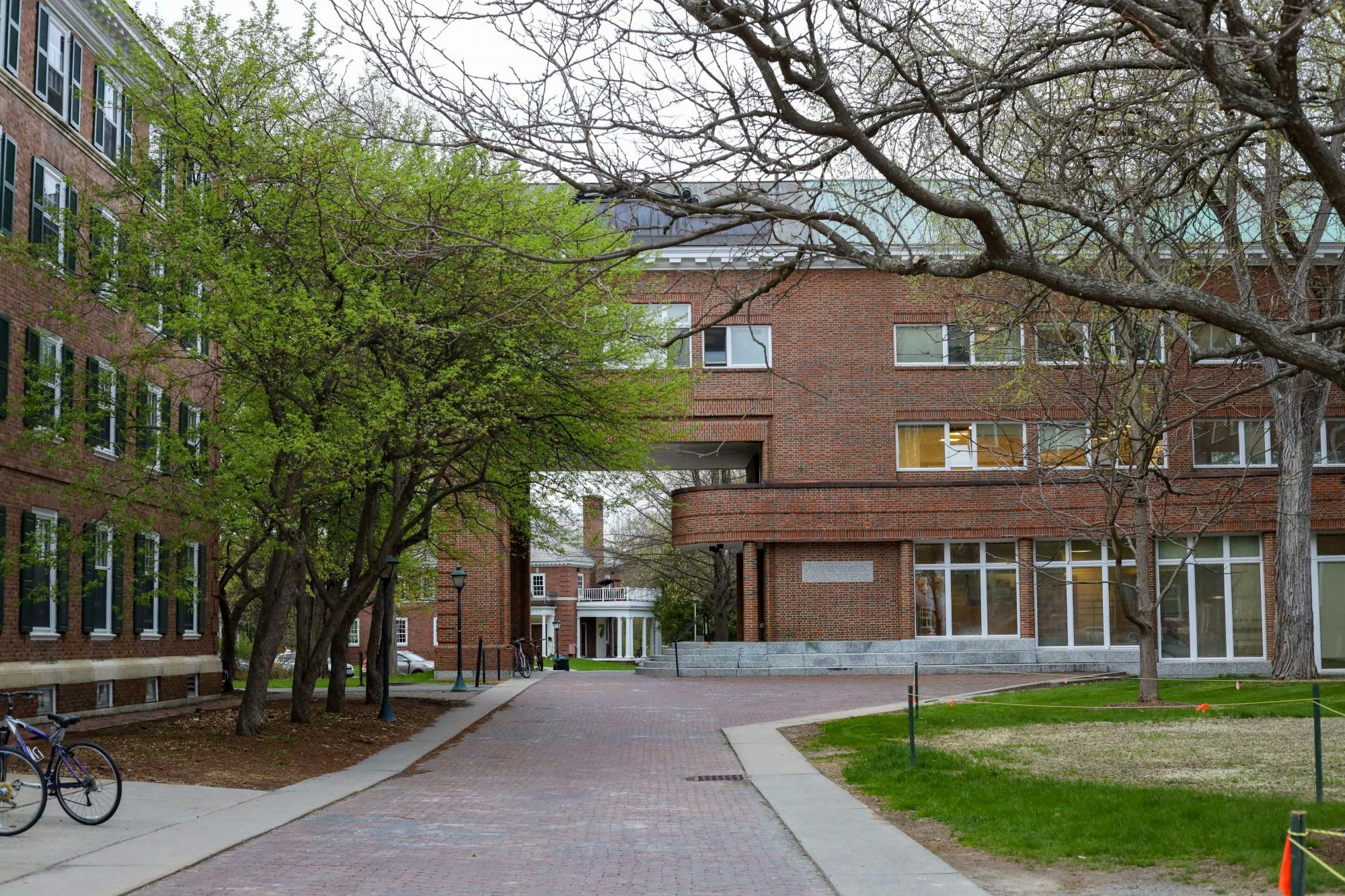On Feb. 9, the Rockefeller Center for Public Policy hosted a virtual Zoom webinar titled: “Julian Assange: Visionary or Villain?” The event featured president of The Markup — an online news outlet with a focus on technology — and leading free speech attorney Nabiha Syed, and was hosted by English and women’s, gender and sexuality studies professor Alexis Jetter.
During the event, Syed and Jetter discussed the United States’ attempts to prosecute WikiLeaks founder Julian Assange and what this could mean for the future of investigative journalism. The event also touched on Syed’s career as a free speech attorney, the role of Freedom of Information Act requests in investigative journalism and Assange’s work with WikiLeaks. Syed dialed into the Zoom meeting from her phone after an internet outage in downtown Brooklyn.
“I thought it was interesting to go, not only for class, but for my own knowledge as well,” Anell Paulino ’25 said. Paulino added that she is currently taking WGSS 7.04, “Women in Journalism” with Jetter.
In an interview with The Dartmouth, Jetter explained that Assange has been accused of a violation of the Espionage Act by the U.S. government for publishing a video titled “Collateral Murder” to WikiLeaks after receiving a leak from former Army intelligence analyst Chelsea Manning. Jetter said the video captured footage of two pilots in a U.S. Apache helicopter acting as if they were playing “a video game,” as they shot and killed civilians, as well as two Reuters reporters outside Baghdad in 2007.
Jetter added the U.S. considers the “indiscriminate killing of civilians” a war crime.
“If the U.S. government goes after Julian Assange, are we criminalizing journalism, and what message is that sending at a time when it is very difficult to be a journalist?” Jetter asked at the start of the webinar.
During the webinar, Jetter said that Assange now faces 175 years in prison for his work, whereas Azmat Khan, an investigative journalist for The New York Times who revealed alleged war crimes in Afghanistan, “will probably get a Pulitzer” for her work.
Syed said that the fact that Khan and Assange face completely different circumstances “only makes sense when you look at the process and not the outcome.”
Syed explained that Khan’s process of revealing alleged war crimes differs from Assange’s leaked video in that Khan makes FOIA requests to the U.S. government. Under the Freedom of Information Act, any citizen can request the government to disclose existing records that are not subject to exemptions under national security or law enforcement, she said.
“[Anyone] can file a request for existing records that the government agencies have, and they have to query and give them to you,” Syed said.
The Freedom of Information Act contrasts, Syed added, with the “far more radical” transparency envisioned by WikiLeaks. Syed noted that she believes Assange does not follow a legal process when releasing information due to his “sense of urgency” and desire to inform the public and incite change without wasting time.
“Urgency is important, but it’s not the only factor –– the [FOIA] process introduces other factors of importance, whereas for Julian, he felt that the urgency of change was something that he had to advocate for,” Syed said. “That class of advocacy is something that’s uncomfortable for a lot of people who identify as journalists.”
Syed also shared pieces of her personal background and how various events drew her to become passionate about the public’s right to information. Syed said that she was 16 years old living in Orange County, California, when she faced the aftermath of 9/11 as a Muslim American.
“Countless people from my religious community, from my ethnic background, had the FBI knocking at their door, asking them all kinds of questions about what they knew,” she said. “That was just a normal part, a horrifying part of being a Muslim American at that time.”
According to Syed, internet use was not as widespread at the time, which meant the public “did not know the reality of Muslim American life.”
Syed explained how the advent of the Internet has enabled people to upload information without any intermediary. In the past few years, “the terrifying ubiquity of police shootings” has been made available to the public via social media platforms to and has been able to activate social movements, such as the protests in the wake of the murder of George Floyd in the summer of 2020, she said.
In response to a follow up question about why many journalists do not align themselves with Assange, Syed said two Swedish women came forward accusing Assange of rape and sexual assault in 2010, but Sweden ultimately dropped the case after Assange took refuge in the Ecuadorian embassy in London for seven years.
“There is discomfort with someone who is openly distasteful,” Syed said of the allegations.
Had Assange been successfully tried in Sweden, he may have then been extradited to the United States to face trial for the allegations related to WikiLeaks.
According to Syed, another allegation — that Assange’s publication of State Department documents put people in “direct danger” — also contributes to journalists not wanting to associate themselves with him.
Dara Carey ’25, who attended the Zoom webinar, shared some of her key takeaways from the event –– including a new perspective on the dangers of being a reporter.
“Being a reporter is a very dangerous job. So if [the government] were to incriminate Julian Assange, that might de-incentivize reporting,” Dara Casey ’25 said.

Arizbeth Rojas ’25 is a managing editor of the 181st directorate from Dallas, TX. When she’s not listening to DJ Sabrina the Teenage DJ or planning her next half marathon, you can find her munching on a lox bagel.




